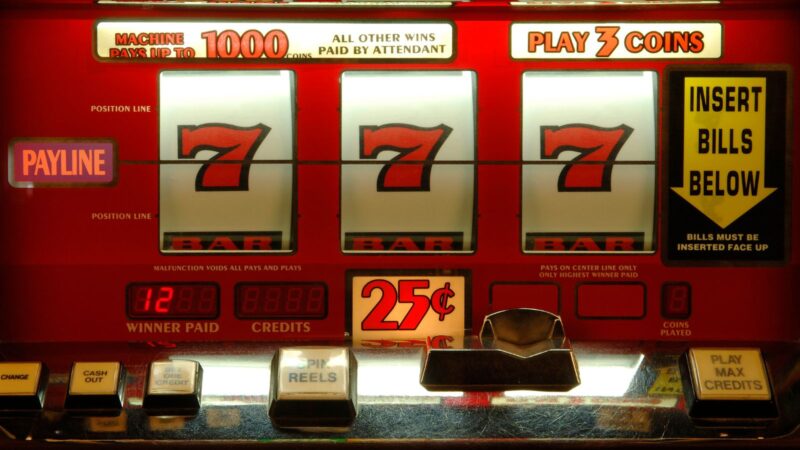
The Portland Trail Blazers were not expected to make the playoffs this year. They weren’t supposed to be competing with teams like the Denver Nuggets and New Orleans Pelicans for a spot in their conference (especially after trading away two of their best players and losing Wesley Matthews and Meyers Leonard). The Philadelphia 76ers, however, are one of those bad-to-the-bone playoff contenders that has all but locked up a first round bye —and they’re on track to defeat any team put before them.
The Portland Trail Blazers are missing Marcus Morris, who is out with a calf injury. The team’s other big offseason acquisition in free agency, Shabazz Napier has also been ineffective so far this season and doesn’t look like he’ll be able to turn things around soon enough for the struggling team.
The “Portland Trail Blazers news” is a blog that covers all things related to the Portland Trail Blazers. The blog has 3 pressing concerns from their most recent loss to the Philadelphia Sixers.
In the NBA, winning on the second night of a back-to-back road trip is difficult, particularly for West Coast clubs playing Eastern Conference opponents. Given the caliber of Monday’s opponent, don’t expect the Portland Trail Blazers to be comforted by that truth.
At Wells Fargo Center, the 76ers defeated the Blazers 113-103, handing Chauncey Billups’ squad its second consecutive loss in less than 24 hours. What could be more depressing? Despite Joel Embiid resting his delicate right knee and Ben Simmons continuing to stay out, Portland was unable to defeat the Sixers, with Tobias Harris becoming a late scratch for Monday’s game owing to health and safety rules.
Following possibly their most demoralizing performance of the short season, the Blazers have three major problems.
At the POA, there was no attack.
After being torn to pieces by the Charlotte Hornets after halftime, it was natural to imagine that the Sixers’ shorthanded roster would be a simple fix for Portland’s crazily inconsistent defense. Wrong. From the start, the Blazers lacked edge and energy against Philadelphia, falling prey to both scheme uncertainty and being out-muscled one-on-one much too often.
Against Tyrese Maxey, Shake Milton, and Georges Niang, Portland’s point-of-attack defense was even poorer than it was against LaMelo Ball, Miles Bridges, and Terry Rozier. No Blazer is immune to criticism for not protecting the ball with his teeth, but Damian Lillard receives the brunt of it. You’d think that players like Seth Curry and Tyrese Maxey, both brilliant in their own ways but hardly unguardable stars, wouldn’t be able to blast right past Lillard for layups.
C.J. McCollum was somewhat better than Lillard, but he didn’t put up much of a fight when the Sixers attacked him off the dribble. Anfernee Simons was also taken advantage of. In terms of defense, Robert Covington was a liability, and even Nassir Little was exploited in isolation.
“Defensively, we didn’t have it tonight,” Billups said after the game. “We were a step behind,” says the narrator.
Let’s say you’re two or three steps behind.
The Blazers had a wonderful chance to escape a grueling road back-to-back with one victory, coming into Wednesday’s game against the unexpectedly strong Cleveland Cavaliers with some noticeable momentum, thanks to the unexpected absences of Embiid and Harris. Instead, Portland will have to summon all of its might to avoid going winless on this short three-game road trip.
The Hook Is Dropped on Robert Covington
Covington was averaging less points and shooting worse from the field and beyond the arc than he had in any season since establishing himself as a rotation player in 2014-15. Covington is currently receiving less court time than he has in any season since 2021-22, after playing only 19 minutes against his old club, certainly his lowest total since then.
A unexpectedly low single-game minute total isn’t always indicative of a player falling out of favor with his coach, even if he’s struggling as Covington has in the early going of the season. In the NBA, matchups count, and the Blazers have a lot more two-way players at forward than they had a year ago, when Covington first arrived in Rip City. However, Covington’s lack of playing time might be the start of a larger issue, given his objectively harmful performance on Monday and Billups’ swift second-half hook for him.
This can’t happen to a guy like Covington, who prioritizes defense.
He’s also been more jittery and perplexed when it comes to implementing Portland’s zone than any of his teammates, who don’t appear to be at ease when Billups employs that strategy.
Covington didn’t quite make up for it on the other end. He adds to the problem of passing up a pick-and-pop three by placing the ball on the deck to nowhere before telegraphing a McCollum kickout.
After then, Billups had had enough and called a timeout to help stop the Sixers’ momentum. Little took Covington’s spot at power forward when Portland returned from the break, a deviation from the Blazers’ usual rotation thus far this season. Little usually receives Norman Powell as Billups’ first sub, followed by Larry Nance Jr. for Covington.
Billups didn’t make just one change to his lineups in the second half. When Little came in for Covington early in the game, he stayed on the bench the rest of the game, even as Portland played small-ball with Nance at center and ended the game with four guards around Jusuf Nurkic.
Maybe Billups just felt Covington wasn’t up to it on Monday, happy to stymie the Blazers’ regular rotation in order to give his side the greatest opportunity to win. Covington’s absence from the starting lineup against Cleveland, or even a reduction in his minutes, would be stunning. Covington’s awful performance and ultimate benching against the Sixers is worth reading into, especially given his lessened two-way influence heading into this game and the availability of Tony Snell, who was terrific in his Portland debut.
Crunching the numbers
After the game, Billups highlighted the Blazers departing from their usual rotation, pointing to the difficulty of finding 10 players minutes now that Snell is healthy. That’s an issue most clubs would love to have, but given the reputation and experience of players like Covington, Snell, and Nance, as well as promises made to them before to the season, it might be difficult for Portland to manage.
Snell did not sign a veteran’s minimum contract with the Blazers to join C.J. Elleby and Greg Brown III on the bench. Nance said all the right things about taking whatever position he’s given during Media Day, but he’s coming off two seasons in which he established himself as a legitimate starter. Because Covington is a free agent this summer, reducing his minutes would be risky for Portland.
Simons and Little aren’t going away; they provide a much-needed athletic boost that the team’s older players can’t match. The best option is to play more small-ball, which seems possible given the degree to which Billups played it on Monday and the Blazers’ centers’ injury history. But what about when Nurkic and Zeller are in good health? Nurkic must achieve his full potential for Portland to reach its top, and Zeller has delivered a shock on one or both sides of the ball almost every time Billups has called his number this season.
Even before accounting for the many other things a rookie head coach must learn on the fly, Billups had enough to cope with showing the Blazers’ new tactics are viable at a high level and continuing to create connections with his players. Juggling Portland’s unprecedented numbers crunch is a problem he didn’t need, particularly if doing it effectively means Covington misses a significant amount of time.


The “why is dallas ahead of portland” is a question that has been on the minds of Blazers fans for some time. The Blazers lost to the Philadelphia 76ers and now find themselves in 12th place in the Western Conference standings.
Related Tags
- oregon live trailblazer news
- portland trail blazers article
- mavericks clinch
- nuggets-mavericks











